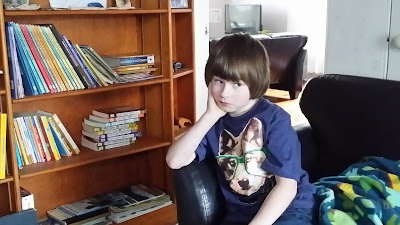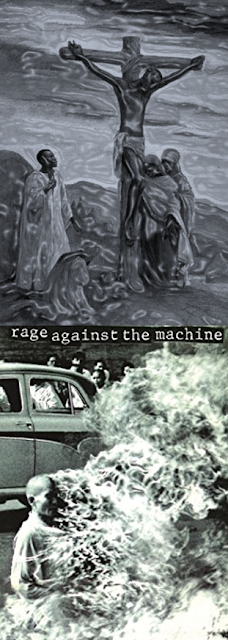"A Lull in the Rhythm of Daily Doing"
THE place of prayer & meditation in the life of modern man is
limited & hedged in by the multiplicity of details to which attention must
be given as a normal part of daily experience. It is true that in some sense a
man’s whole life may be regarded as his prayer. Ordinarily, what a man does is
an expression of his intent, & his intent is the focusing of his desiring,
& his desires are the prayers of his heart. But such explanations are far
from satisfactory. There is no argument needed for the necessity of taking time
out for being alone, for withdrawal, for being quiet without & still
within. The sheer physical necessity is urgent because the body & the
entire nervous system cry out for the healing waters of silence. One could not
begin the cultivation of the prayer life at a more practical point than
deliberately to seek each day, & several times a day, a lull in the rhythm
of daily doing, a period when nothing happens that dem&s active
participation. It is a wonderful way with which to begin the day & to bring
one’s day to an end. At first the quiet times may be quite barren or merely a
retreat from exhaustion. One has to get used to the stillness even after it has
been achieved. The time may be used for taking stock, for examining one’s life
direction, one’s plans, one’s relations, & the like. This in itself is most
profitable. It is like cleaning out the closets, or the desk drawers, &
getting things in order. The time may be used for focusing & re-focusing
one’s purposes in the light of what at first may be only one’s idea of the best
& the highest. Then quiet changes begin to take place. Somewhere along the
way, one’s idea of the best & the highest takes on a transcendent character
& one begins to commune, to communicate with one’s idea of the best &
the highest— only a man does not talk to, or with, an idea. When the awareness
of God comes in— how He entered, one does not know— one is certain that He has
been there all the time. This assurance is categorical & becomes the very
core of one’s faith; indeed, it becomes more & more one’s faith. Suppose
you begin now, this day, with the use of the quiet time in some such fashion as
suggested.
-
Howard Thurman
One of the details demanding our attention is of our own
making in some ways. I am thinking of social media. Facebook for me. In some
ways, Facebook is very helpful. A big part of my job as a minister is using
social media to garner interest and share info. It really is vital.
However, Facebook has its drawbacks. It can be addictive. In this case, the more you use it, the more
it demands your attention, and the more you can’t get away from it.
When you combine this with the normal demands of life –
working to pay the bills, getting to work, raising children with the various
and vital needs there, being involved in your family’s life – visiting parents
and siblings, being part of a community of friends like a church. These are the
demands life gives. And we have to tend to them.
These demands absolutely limit and hedge in the practice of
prayer and meditation. Who has the time and energy to pray and meditate when in
the spare time we have the only thing we really want to do is either take a nap
or check out with mindless activities like watching TV or scrolling through
Facebook posts?
So what are we to do?
Well, Thurman would have us remember that prayer and
meditation are not confined to a set time in the morning where we sit and pray
or meditate. Thurman reminds us that all of life “may be regarded as a person’s
prayer. “
Thus when we are watching TV and scrolling our Facebook page
we can be said to be acting in the presence of God and thus praying. So the
question, an incredibly big question, is – are we watching TV or scrolling our
Facebook page in the spirit of prayer. This is to say are we doing these things
mindfully?
This question are we watching TV mindfully or are we engaging
with Facebook mindfully begs the question – what does it mean to watch TV
mindfully or engage with FB mindfully?
The kids song I grew up singing comes to mind. “Be careful
little eyes what you see, be careful little eyes what you see, for God up above
is looking down with love, o be careful little eyes what you see.”
There is surprisingly more to this song than you might think.
What does it mean to be careful? Well, for me, a great synonym
for careful is “mindful.” When one mindful of what they are doing, when one is
aware of the moment and of themselves in the moment engaging with various
things in that moment, one is naturally careful, purposeful, intentional, not
mindless.
When we are mindful of what we see, when we are mindfully
seeing something, we are naturally careful, yes, but we are also living with
the awareness of God’s loving presence.
There is a process, a maturing element to this. At first,
especially when we are children, we are careful and mindful about what we see
or say or hear because we sense loving God, like a parent, is watching and sees
what we do. But when we grow and mature spiritually, we are careful and mindful
about what we do because God’s love is such a part of us, so internally
residing and real, that we are naturally moved by God’s love. And God’s love is
the epitome of mindfulness.
But back to our central question what does it mean to do
things like watch TV or use Facebook mindfully?
To mindfully watch TV or engage with FB means we are careful,
we are mindful about what we watch on TV or how we engage with Facebook. Can we
mindfully watch an ultra-violent TV show like “The Walking Dead” or “Game of
Thrones”? Or a hypersexual movie? Or purposefully degrading talk shows? Or
troll and make ugly and insulting comments on Twitter or Facebook?
I won’t answer these questions for you, but ask you to
consider for yourself. But I will say if we watched TV or engaged with Facebook
in the spirit of prayer and mindfulness, how different things would be. If
presidential candidates - knowing that their intent is the focus of their
desires, and their desires are the prayers of their hearts – lived with the
idea that what they intend to do and what they want amounts to prayer, how
different things would be.
What is clear, and what Thurman is strong in explaining, is
that we cannot well live mindfully, prayerfully, healthily if we do not have a
practice that undergirds all we do. He says that we need to take time out for
being alone and quiet because “the sheer physical necessity is urgent… the body
and the entire nervous system cry out for the healing waters of silence.”
The human body cannot withstand constant work, constant going,
constant doing. We need sleep, of
course. But we also need what Thurman calls “a lull in the rhythm of daily
doing. This lull is where we stop our minds thinking and working things out,
which can happen even in our sleep.
As parents, we are trying to teach Corey the importance of
being bored. You know how kids repeat those universal words – “I’m bored.” I
said them. My siblings said them. My friend said them. Corey says them. “I’m
bored.”
It is interesting how when we are kids we want constant
entertaining, constant activity, constant things to do. When there isn’t
anything to do, kids complain of being bored. Then, we become adults. And for
many adults, the desire for constant activity doesn’t change. Many adults
replace the constant need to play with the constant need to work.
 We never learn the importance of being bored. We never learn
the importance of doing nothing and being okay with it. No, we may not say,
“I’m bored” like Corey does. But we think it, don’t we?
We never learn the importance of being bored. We never learn
the importance of doing nothing and being okay with it. No, we may not say,
“I’m bored” like Corey does. But we think it, don’t we?
And then we turn on the
TV and scroll down our FB page. I am just as guilty as you are.
How can we learn the importance of being bored? By practicing
being bored. In many ways, meditation and contemplative prayer is the
intentional practice of being okay with being bored. It is the intentional
practice of being okay with simply sitting with God and doing nothing at all.
It is amazing but true. In being okay with being bored. In
finding contentment in simply sitting with God and doing nothing at all, we do an incredible thing. We engage
in what amounts to spring cleaning of the soul.
“We clean out the closets, or the desk drawers, and get things
in order.” As Thurman notes, “quiet changes then begin to take place.”
As we sit with God, content with doing nothing at all but simply
sitting with God, God becomes a part of us. Thurman says, “the awareness of God
comes in [and] one is certain that God has been there all the time. This
assurance is categorical and becomes the very core of one’s faith; indeed, it
becomes more and more one’s faith.”
This is the faith of God’s presence all along. A faith that is
born of us being present with God.
So I close as Thurman closes his meditation, “Suppose we begin
now, this day, with the use of the quiet time in some such fashion as suggested.”



This is great! Thank you.
ReplyDeleteThis is great! Thank you.
ReplyDelete